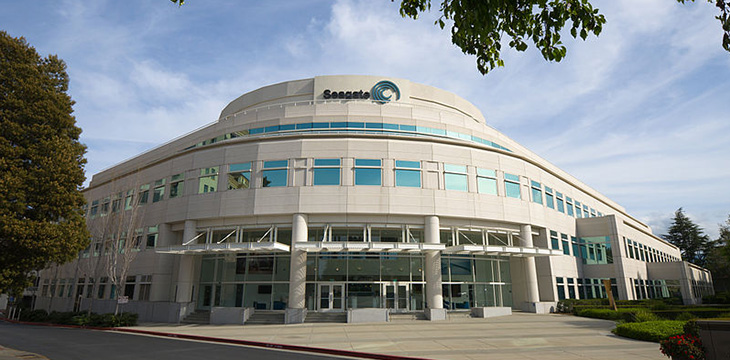|
Getting your Trinity Audio player ready...
|
American data storage company Seagate Technologies is set to pilot a blockchain project to fight counterfeit hard disk drives. According to a report by Forbes, the California-based company has partnered with tech giant IBM on the project for which it recently received regulatory approval.
Seagate kicked off a proof-of-concept last year with the Big Blue whose main focus was provenance, Manuel Offenberg, the research group managing technologist revealed. The proof of concept was wrapped up earlier this year, expressing the effectiveness of blockchain in sync with Seagate’s products.
Offenberg stated, “We just went through an executive review on the next step, and the next step is starting a pilot with IBM.”
The project will enable Seagate’s customers to have full confidence that the product they receive is the genuine product that Seagate sent. Moreover, it will work for Seagate, tracking products back to Seagate in the case of a product return. This ensures that the clients don’t abuse the company’s return policies by returning products that are different from the ones they bought.
In the pilot, IBM shall be the sole customer for the hard drives. IBM shall also act as the technology provider, with the platform being built on the Linux Foundation-hosted Hyperledger Fabric. It intends to bring in other large players into the system in due time. Most of Seagate’s revenue is from large corporations, Offenberg explained, so they will be the sole focus of the platform initially. The retail clients will continue using the brand protect ID solution already in place. In the future, Seagate might incorporate this solution on the blockchain system, he said.
In cases where customers return defective hard drives, they may still have some client information on them. Seagate has a solution for this: certified erase. Offenberg explained, “When a drive fills in a customer’s system and the drive comes back as part of its returns process, if we can prove that the drive was cryptographically erased, and therefore, the information is no longer on the device, then, from a risk perspective, this reverse supply chain can treat that device differently.”
Seagate joins other tech giants which are exploring blockchain solutions. They include Alibaba, Amazon, SAP, Oracle and Baidu.

 02-23-2026
02-23-2026 




